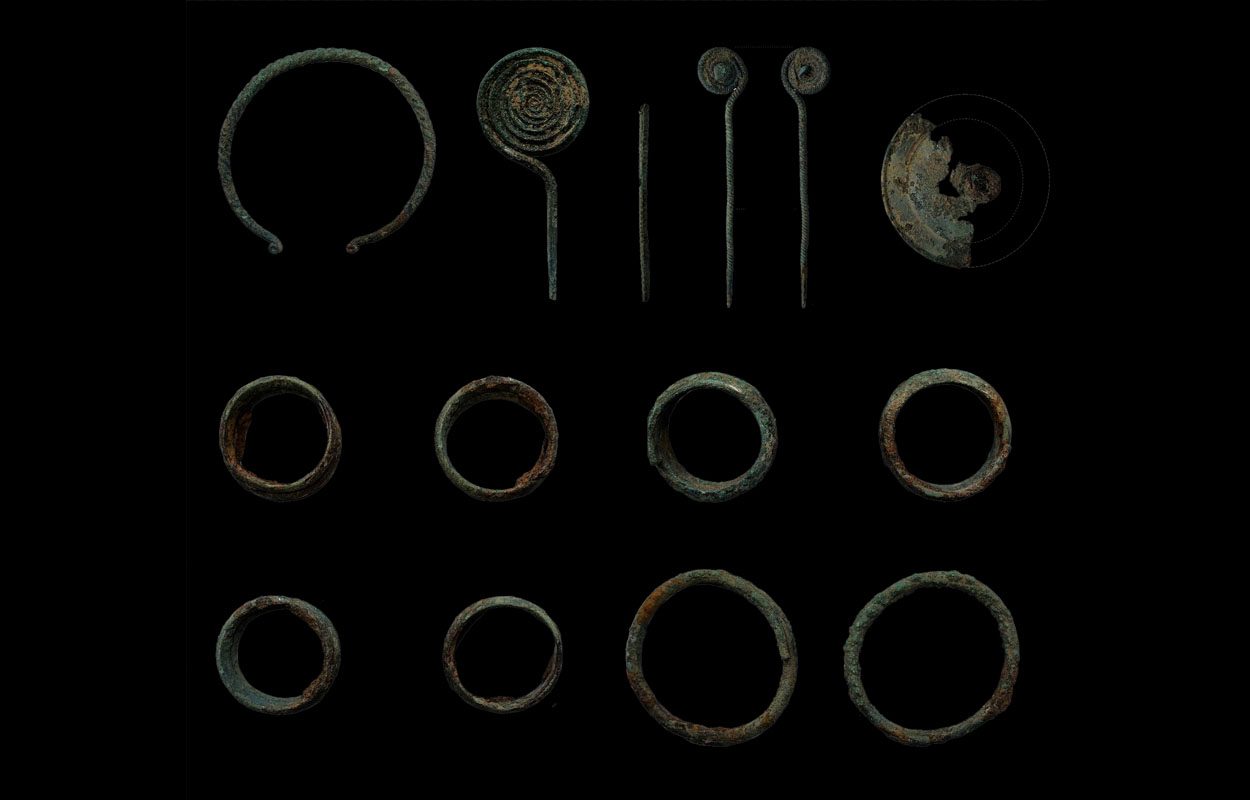A metal detectorist has uncovered a hoard of bronze artefacts during a survey in the village of Czernięcin Poduchowny, eastern Poland.
The discovery was made by Łukasz Jabłoński, a licensed detectorist who notified authorities at the Provincial Office for the Protection of Monuments in Lublin.
A total of 13 bronze artefacts dating from 2,500-years-ago have been located, including pins for clothing, shin guards, and bracelets which are associated with the Lusatian Culture.
The Lusatian Culture emerged during the Late Bronze Age and expanded their territories across most of present-day Poland, parts of the Czech Republic, Slovakia, eastern Germany and western Ukraine during the Early Iron Age.
The name of the culture refers to the Lusatia area in eastern Germany (Brandenburg and Saxony) and western Poland, where ‘Lusatian-type’ burials were first described by the German pathologist and archaeologist, Rudolf Virchow (1821–1902).
Excavations of the discovery site have found two pins, a torc, fragments of a small decorative phaler, four large bracelets decorated with incised herringbone and transverse lines, four smaller bracelets, and a decorative tubular pin.
Archaeologist, Wiesław Koman, said: “The find is all the more sensational, because ornaments of the Lusatian culture are very rare in the region and they are normally only single objects or fragments, and here we have a whole set of them.”
Koman added that the discovery provides “great cognitive, scientific and conservation importance for archaeologists, in the context of analysing the settlement of this culture in the area, as well as in the entire Lublin region.”
Header Image Credit : Provincial Office for the Protection of Monuments in Lublin





